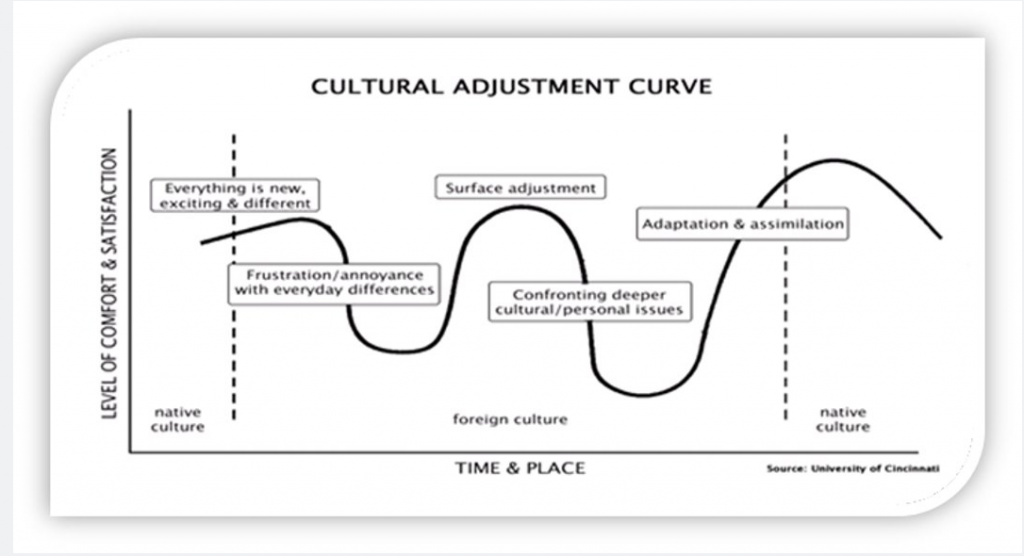
Is This Cultural Adjustment or a Mental Health Issue?
Studying abroad can be both incredibly exciting and extremely difficult. Experiencing these wide range of emotions can be confusing. The table below may help differentiate between cultural adjustment issues and mental health issues. Cultural adjustment issues relate to the feelings that one experiences when they have to operate within an entirely different cultural environment. Mental health includes our emotional, psychological, and social well-being. It affects how we think, feel, and act. It also helps determine how we handle stress, relate to others, and make choices. Mental health is important at every stage of life, from childhood and adolescence through adulthood. The Counseling Center staff is here to help you with any questions or needs regarding your experiences! Visit our homepage for information on scheduling an appointment.
Cultural Adjustment Issues
- Excitement
- Homesickness
- Frustration
- Trouble sleeping
- Fatigue
- Irritation
- Stress
- Safety concerns
- Feeling of vulnerability
Culture Shock
Mental Health Issues
- Academic problems
- Cultural identity conflicts
- Isolation
- Eating Disorders
- Anxiety
- Depression
- Anger ( that is persistent, explosive, and/or atypical)
- Thoughts of self-injury
- Suicidal thoughts
- Substance abuse
One of the most common challenges international students face is dealing with “culture shock.” Culture shock is a feeling of disorientation many people feel when experiencing an entirely new way of life. Many international students find it difficult to adjust to the culture of their host country. The International Student website provides good information about the signs and symptoms and offers tips on how to combat culture shock.
Stress and Culture Shock as an International Student
Cultural Adjustment Curve

The Cultural Adjustment Curve graph shows the level of comfort and satisfaction one experiences in a new culture is high when everything is new and exciting. Comfort and satisfaction start to decline as time progresses and one begins to experience frustration/annoyance with every day differences. As time continues surface adjustment takes place until the individual confronts deeper cultural/personal issues. Finally the individual adapts and assimilates.
Mental Health
Mental Health Awareness for International Students
No Shame in Taking Care of Your Mental Health
Tips for Connecting with International Students
Adapted from Northeastern University- Nine Tips for working with International Students
Do
Learn and practice the corrected pronunciation of names
Ask open ended questions to check understanding
Let them finish their thoughts
Pay attention to non-verbal’s
Ask about their culture and point of view
Explain what jargon and acronyms mean
Don’t
Use easier names without permission
Assume knowing what they want to say
Interrupt
Don’t expect them to represent their whole country
Make assumptions
Demand they think US norms or processes are superior
